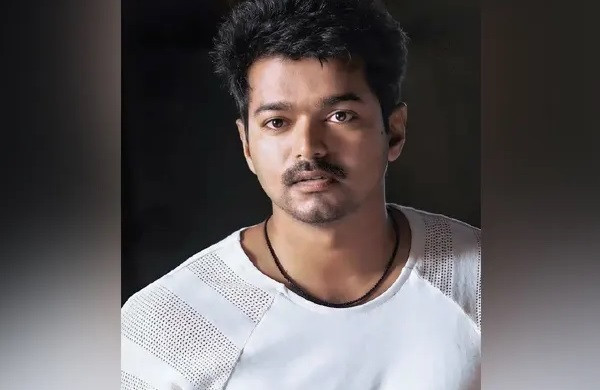
Actor Vijay (Image source: Instagram)
The southern Indian state of Tamil Nadu is not new to cinema personalities trying their luck outside the big screen and box office. It is the only state which has seen actors and a script writer straddling both the world of arclight and politics with equal elan and five chief ministers linked to Tamil cinema, including three actors. One has to just recall how M G Ramachandran, a superstar of his time, actress Jayaram Jayalalithaa and M K Karunanidhi, a prolific scriptwriter, rose to occupy the post of chief minister. The latest to take the plunge into politics is 49-year-old super star-cum-action hero ‘Thalapathy’ Vijay who announced the launch of his political party Tamizhaga Vetri Kazhagam (VTK) on February 2.
Vijay, popular as ‘Thalapathy’ (commander) to his fans, is only the third superstar, after M G Ramachandran and Rajinikanth, to make this transition from box office to politics. Vijay’s popularity is on par with M G Ramachandran (popularly known as MGR) and Rajinikanth, another superstar of Tamil cinema. While MGR played a fairly long innings in politics and became a chief minister, Rajinikant’s political sting was short. What also makes Vijay stand out is that, unlike some other film personalities of the Tamil film industry, he has vowed to join politics as a full-timer after quitting the tinsel town so that he could fulfil his prior cinema commitments. M G Ramachandran and Kamal Haasan continued to act in films even after their political debut. If Vijay sticks to his claim, this is something none before him has done.
Vijay said politics for him is not just another profession. But his timing to enter the political arena of Tamil Nadu is perfectly timed--two years down the line when the state goes to fresh state legislature elections. Vijay would be shifting to politics even when he is at the peak of his popularity. His last film 'Leo' is reported to have earned Rs 530 crore at the box office. Vijay is seeking to turn his huge fan club Vijay Makkal Iyakkam and the social services associated with it as the launch pad for his political plunge. Vijay acknowledges it is not possible to bring about socio, economic and political reforms by a voluntary organisation as it requires political power.
What will be the political position of Vijay’s new party? An indication could be had from the third paragraph of his three-page statement issued on February 2. “You are all aware of the current political climate. These are obstacles to our unity and progress -- administrative malpractices and corrupt politics on the one hand and a divisive political culture that aims at dividing the people into the lines of caste and religion on the other hand,” Vijay said. The keywords are corruption and politics which divide the people based on castes and religion. This means he has positioned his party, at least for now, as a counter to the long and deeply-entrenched political parties in Tamil Nadu—ruling Dravida Munnetra Kazhagam (DMK) led by chief minister M K Stalin (who has also acted in three films and a TV serial) and main opposition All India Anna Dravida Munnetra Kazhagam (AIADMK) who have formed successive governments in the state since 1967. DMK and AIADMK are parties which feed on caste equations. But like any other regional party of Tamil Nadu, the very name of Vijay’s party implies its ideology is Tamil sub-nationalism and rooted in Dravidian politics. BJP is a minor player in Tamil Nadu politics. Given the overall political landscape of Tamil Nadu, can TVK mount a credible challenge to existing players in the state? Will Vijay’s popularity as an actor provide his political sustenance?
In the past, late actor Vijaykanth had launched his party Desiya Murpokku Dravida Kazhagam (DMDK) but he had made a mark for a short time in the state’s politics. Actor Kamal Haasan’s Makkal Needhi Maiam (MNM) was launched in 2018, as an alternative to DMK and AIADMK but failed to gain traction in elections and is now reportedly in negotiations with DMK-Congress alliance for securing one seat in coming Lok Sabha elections in the state. Rajinikanth began dalliance with politics in 2017 and formed his political party Rajini Makkal Mandram. However, it lasted for four years before he dissolved the outfit.
DMK will be saddled with anti-incumbency in the 2026 assembly poll and AIADMK, after Jayalalithaa’s death in 2016, has been on the decline despite having a big gigantic organisational machinery and cadre in the state largely due to infighting and absence of a charismatic leader. Can the ‘commander’ of Tamil cinema ride his popularity as an actor and the organisational structure of his fan clubs to eat into the space occupied by DMK and AIADMK?
The writer is a veteran Indian journalist.

